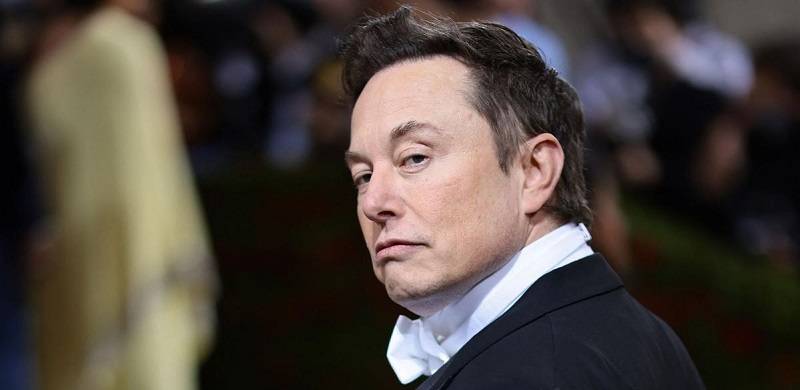
Since his acquisition of Twitter in October, Elon Musk has been relentlessly waxing lyrical about his commitment to free speech and fostering open discourse. However, Musk's actions have contradicted his rhetoric, and his grandiose statements about freedom of speech have been incongruent with his actions thus laying bare the screaming hypocrisy. The suspension of Ryan Mac, Donie O'Sullivan, Aaron Rupar and Matt Binder and other distinguished journalists who were critical of Musk's antics – his latest attempt at silencing the dissenters – is a glaring indication that the tech mogul's concept of free speech is a deeply flawed one.
Twitter has long been an outlet for journalists to share their opinions, engage in debate, report and hold accountable those in positions of influence. The implications of Musk using his power and influence to squelch the dissenting voices who dare to question him on the platform are threefold.
First and foremost, it sets a dangerous precedent for the silencing of critical voices on social media platforms. It sends a message that if you dare to speak out against those in power, you risk being silenced which essentially undermines the very foundation of freedom of speech. This kind of heavy-handed censorship is especially concerning given the increasing reliance on social media as a source of news and information.
Censoring critical reporting of Musk's actions is also a direct threat to the freedom of the press. These journalists were suspended for doing their job: reporting on and calling out the actions and statements of a public figure. By silencing them, Musk is not only attacking their freedom to speak, but also their ability to hold him accountable. Not only does this expose blatant abuse of power, Musk evading accountability continues to place a large question mark over his abilities to run a major social media platform like Twitter.
Thirdly, and most importantly, this suspension of journalists raises serious questions about the future of Twitter as a platform. Will it be a place where people can freely express their opinions, or will it become a tool for powerful figures to silence their critics? If journalists are not able to report freely and without fear of reprisal, it can undermine the crucial role that journalists play in holding the powerful to account.
Bhaskar Chakravorti, the dean of global business at Tufts University’s Fletcher School of Law and Diplomacy, put it most aptly when he wrote in his article for the Foreign Policy magazine, stating, “If Musk’s plan was to keep what works and change what doesn’t, it’s become clear that what doesn’t work at Twitter is Musk himself. He should swallow his pride, take a loss, and sell the company to a better owner.”
In this digital age, social media platforms have become the primary means through which we communicate and engage with the world around us. It is essential to ensure that platforms like Twitter remain a place where all voices can be heard. However, as long as it is under the ownership of self-serving oligarchs, impartiality and freedom of speech will remain a pipe dream.
Twitter has long been an outlet for journalists to share their opinions, engage in debate, report and hold accountable those in positions of influence. The implications of Musk using his power and influence to squelch the dissenting voices who dare to question him on the platform are threefold.
First and foremost, it sets a dangerous precedent for the silencing of critical voices on social media platforms. It sends a message that if you dare to speak out against those in power, you risk being silenced which essentially undermines the very foundation of freedom of speech. This kind of heavy-handed censorship is especially concerning given the increasing reliance on social media as a source of news and information.
Censoring critical reporting of Musk's actions is also a direct threat to the freedom of the press. These journalists were suspended for doing their job: reporting on and calling out the actions and statements of a public figure. By silencing them, Musk is not only attacking their freedom to speak, but also their ability to hold him accountable. Not only does this expose blatant abuse of power, Musk evading accountability continues to place a large question mark over his abilities to run a major social media platform like Twitter.
Thirdly, and most importantly, this suspension of journalists raises serious questions about the future of Twitter as a platform. Will it be a place where people can freely express their opinions, or will it become a tool for powerful figures to silence their critics? If journalists are not able to report freely and without fear of reprisal, it can undermine the crucial role that journalists play in holding the powerful to account.
Bhaskar Chakravorti, the dean of global business at Tufts University’s Fletcher School of Law and Diplomacy, put it most aptly when he wrote in his article for the Foreign Policy magazine, stating, “If Musk’s plan was to keep what works and change what doesn’t, it’s become clear that what doesn’t work at Twitter is Musk himself. He should swallow his pride, take a loss, and sell the company to a better owner.”
In this digital age, social media platforms have become the primary means through which we communicate and engage with the world around us. It is essential to ensure that platforms like Twitter remain a place where all voices can be heard. However, as long as it is under the ownership of self-serving oligarchs, impartiality and freedom of speech will remain a pipe dream.

